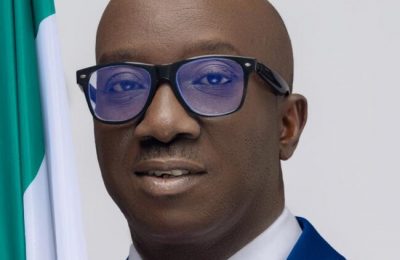CONSENSUS by experts is that men’s mental health should be prioritised from cradle to grave and safe spaces be created where they can express themselves and be vulnerable.
Dr Ayodele Ajayi, a psychiatrist and mental health educator and advocate, speaking in a webinar by the Association of Black Psychiatrists with the theme “Men’s Mental Health: A Global Perspective,” stated that from cradle to grave, mental health conditions tend to occur more in the male gender than the female gender.
According to him, “the very first relationship with our caregivers is something that is really very key; that can set the tone. So, that’s really something that is important.

“We know that things like conduct disorders and ADHD are diagnosed more commonly in men than in women; there’s also some suggestion that these disorders are even more diagnosed in people of ethnic minority background, particularly black boys.
“In the UK, for instance, studies show that young boys, particularly of African background, up until the age of 11, appear to be mentally well and vibrant. But as they progress into adulthood, it looks like that picture begins to change.
“In adulthood, we do know that young people, men, are more likely to die by suicide. For instance, in Europe, we know that men are four times more likely to die by suicide than women are. Even across the globe, men are twice as likely to die by suicide as women.
“A number of things have been propounded in terms of why this is the case. One is the stereotype that is associated with men seeking help, and that appears to be impacting the way that men engage with mental services.”

Dr. Wale Akosile, a psychiatrist and addiction medicine specialist at the University of Queensland in Australia, stated that breaking stereotypes and men embracing mental illness are important for men’s mental wellness.
“Therapy is to remove obstacles that stand in the way of a client’s natural growth and healing process. Why is therapy terrifying for men? It is because it takes courage to be ready to face the questions you have been avoiding your whole life.
“Therapy involves talking about emotions. There’s still the perception that those who talk to therapists are losers. And the reality of therapy is that things get worse to get better. Most people drop out when things are getting worse.
“So, we need to create safe spaces where men can grow. That’s a task for us as a black indigenous people of colour community.”
Professor Taiwo Lateef Sheikh, a psychiatrist at the Department of Psychiatry Faculty of Medicine, Ahmadu Bello University, Zaria, described male suicide as an ongoing conundrum in Nigeria because, for generations, societal roles have pressured men to man up.
According to him, “Men are encouraged to be tough, and any admission that you are not okay for one reason or the other is a sign of weakness. Men are not encouraged to speak up at all. It has its roots in childhood, when we were told that boys don’t cry.
“This cultural norm can lead to severe consequences, including increased risk of depression, anxiety, substance use disorder, and even suicide.
“Men who suffer from depression are likely to end up being alcoholics or substance abusers, while females who suffer from depression are likely to end up in front of the consultation table of the doctor. That’s exactly what happens in this part of the world.
“There are also barriers that tend to prevent men from seeking help, especially the barrier of criminalization of attempted suicide. You are likely to go to jail for one year, and you are not likely to get some support. So, we need to operationalize the suicide prevention framework and operationalize the Mental Health Act.”
Dr Oyedeji Ayanrinde, a psychiatrist at the Queen’s University Kingston in Canada, stated that no one enjoys 100% mental health all the time, and it is incumbent on humanity to support intergenerational navigation of men’s health and men’s mental health.
“If we don’t support intergenerational navigation, we will be outsourcing our legacies and our destinies to social media, the internet, and peers who are less informed,” he added.
Read Also: Subsidy removal: Uzodinma tasks media on adequate enlightenment







